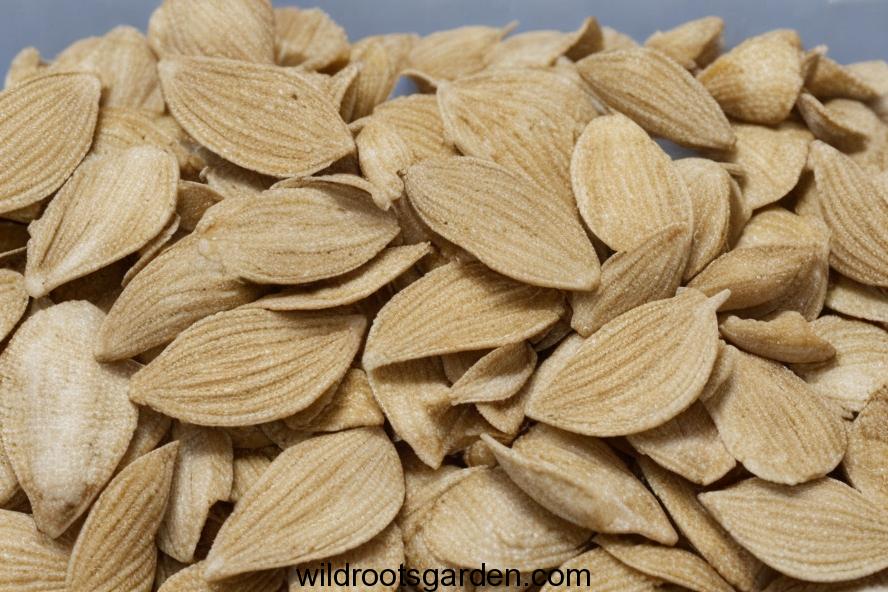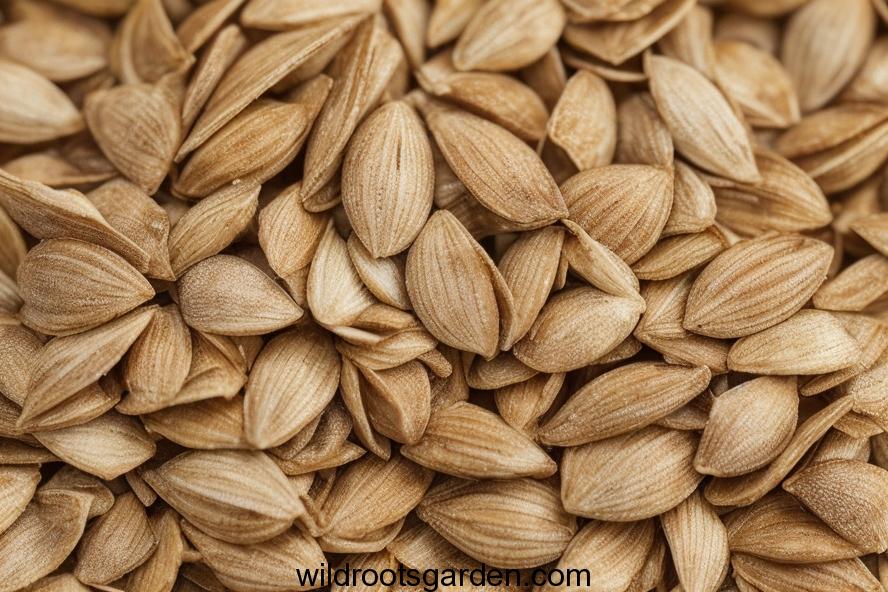Can You Eat the Shells of Sunflower Seeds? We frequently wonder if the shells of sunflower seeds, a beloved snack noted for its nutty flavor and delightful crunch: are edible. Investigating this delicious mystery exposes a range of viewpoints and dietary issues.
While not being harmful, sunflower seed shells can be difficult to eat since they are hard and fibrous. Some fans choose to eat the shells, enjoying the extra fiber and the possibility of a less wasteful snack. Health professionals advise care, though, as the shells can be challenging to digest and run the risk of preventing proper nutrient absorption.
This investigation of the feasibility of eating sunflower seed shells reveals a variety of viewpoints, from risk-takers who enjoy the crunch to health-conscious people who value simple digestion. It’s important to balance the digestive considerations against the potential benefits before determining whether to unravel this gastronomic enigma. So, are sunflower seed shells edible? The junction of personal desire and thoughtful consumption holds the key.
JUMP TO TOPIC
- 1 The Nutritional Composition of Sunflower Seed Shells
- 2 Are Sunflower Seed Shells Safe to Eat?
- 3 Creative Ways to Incorporate Sunflower Seed Shells
- 4 Cracking the Debate: To Eat or Not to Eat?
- 5 Step-by-Step Guide to Preparing Sunflower Seed Shells
- 6 The Environmental Impact of Consuming Sunflower Seed Shells
- 7 FAQs
The Nutritional Composition of Sunflower Seed Shells
Sunflower seed shells, often overlooked, actually contain a variety of nutrients that contribute to their overall nutritional value. These shells are a source of dietary fiber, which aids in digestion and supports gut health. They also contain essential minerals such as magnesium, phosphorus, and iron, which play vital roles in various bodily functions. While the shells are not typically consumed on their own, they can add a nutritional boost when included in your diet.
Are Sunflower Seed Shells Safe to Eat?
Are Sunflower Seed Shells Digestible?
One of the primary concerns regarding sunflower seed shells is their digestibility. The shells are more fibrous and less tender than the inner seeds, which may make them harder to digest for some individuals. While chewing sunflower seed shells can provide a minor amount of dietary fiber, it’s essential to be mindful of potential digestive discomfort.
Potential Benefits of Consuming Sunflower Seed Shells

Incorporating sunflower seed shells into your diet can offer some unique benefits. The dietary fiber found in the shells can promote feelings of fullness and help regulate blood sugar levels. Additionally, the shells contain antioxidants that contribute to overall health and well-being.
Potential Drawbacks and Considerations
On the flip side, sunflower seed shells can be tough and may lead to dental issues if not consumed carefully. Cracking or biting down on hard shells could potentially damage teeth or dental work. It’s crucial to approach sunflower seed shell consumption with caution, especially if you have existing dental concerns.
Creative Ways to Incorporate Sunflower Seed Shells
Sunflower Shell Powder: A Nutrient Boost for Smoothies
One innovative way to include the nutritional benefits of sunflower seed shells is by creating sunflower shell powder. Grind cleaned and roasted sunflower shells into a fine powder and add a tablespoon or two to your daily smoothies. This not only enhances the nutrient content but also adds a subtle nutty flavor and an enjoyable crunch.
Sunflower Shell Garnish: Adding Crunch and Flavor
Sprinkle crushed sunflower shells on top of salads, yogurt bowls, or soups to introduce a delightful crunch and earthy flavor. The shells can elevate the texture of your dishes while providing a unique visual appeal.
Cracking the Debate: To Eat or Not to Eat?
Diverse Cultural Practices
Interestingly, various cultures around the world have different perspectives on consuming sunflower seed shells. In some cultures, sunflower seed shells are enjoyed as a crunchy snack, while in others, they are discarded.
Expert Opinions on Consuming Sunflower Seed Shells
Nutrition experts have varying opinions regarding the consumption of sunflower seed shells. Some believe that the shells’ nutritional benefits outweigh their potential drawbacks, while others advise caution due to the risk of dental damage. As with any dietary choice, it’s essential to make an informed decision based on your individual preferences and health considerations.
Step-by-Step Guide to Preparing Sunflower Seed Shells
Roasting and Flavoring Sunflower Seed Shells

To enhance the taste and texture of sunflower seed shells, consider roasting them in the oven. Spread the cleaned shells on a baking sheet, drizzle with a small amount of olive oil and season with your favorite spices. Roast at a low temperature until they become golden and fragrant.
Ensuring Safety and Digestibility
If you’re interested in trying sunflower seed shells, it’s advisable to start with small quantities and observe how your body responds. Chewing the shells thoroughly and consuming them mindfully can help minimize the risk of digestive discomfort.
The Environmental Impact of Consuming Sunflower Seed Shells
Biodegradability and Waste Reduction
In a world increasingly focused on sustainability, consuming sunflower seed shells can contribute to reducing food waste. The shells are biodegradable and can be composted, offering an eco-friendly alternative to traditional snack packaging.
***In conclusion, the decision to eat sunflower seed shells comes down to personal preference and thoughtful eating. Although some bold snackers might enjoy the crunch and additional fiber, it’s important to be aware of the possible digestive issues and nutrient absorption issues connected with eating the shells. Shelled sunflower seeds are typically advised by health professionals as a more easily digestible alternative that maintains nutritional benefits without endangering intestinal health.
In the end, the reality of consuming sunflower seed shells reveals a complex method of decision-making. Knowing the various benefits and cons can help you make a more informed decision, whether you decide to embrace the shells for their distinctive texture or favor the convenience of shelled seeds. Thus, as you taste the flavors of this delicious snack and think about the effects of your sunflower seed consumption, keep in mind that the decision to shell or not to shell is entirely up to you.

